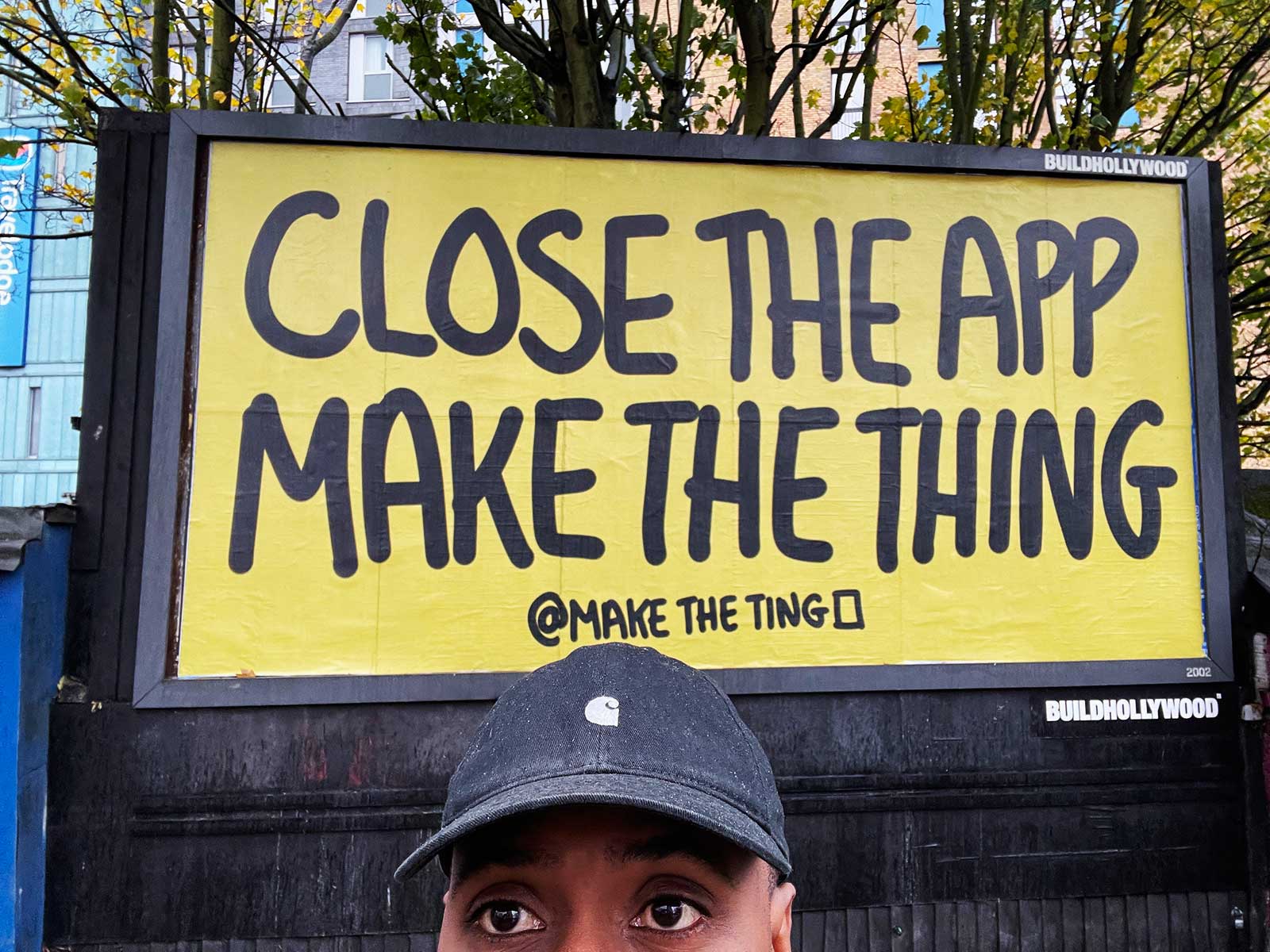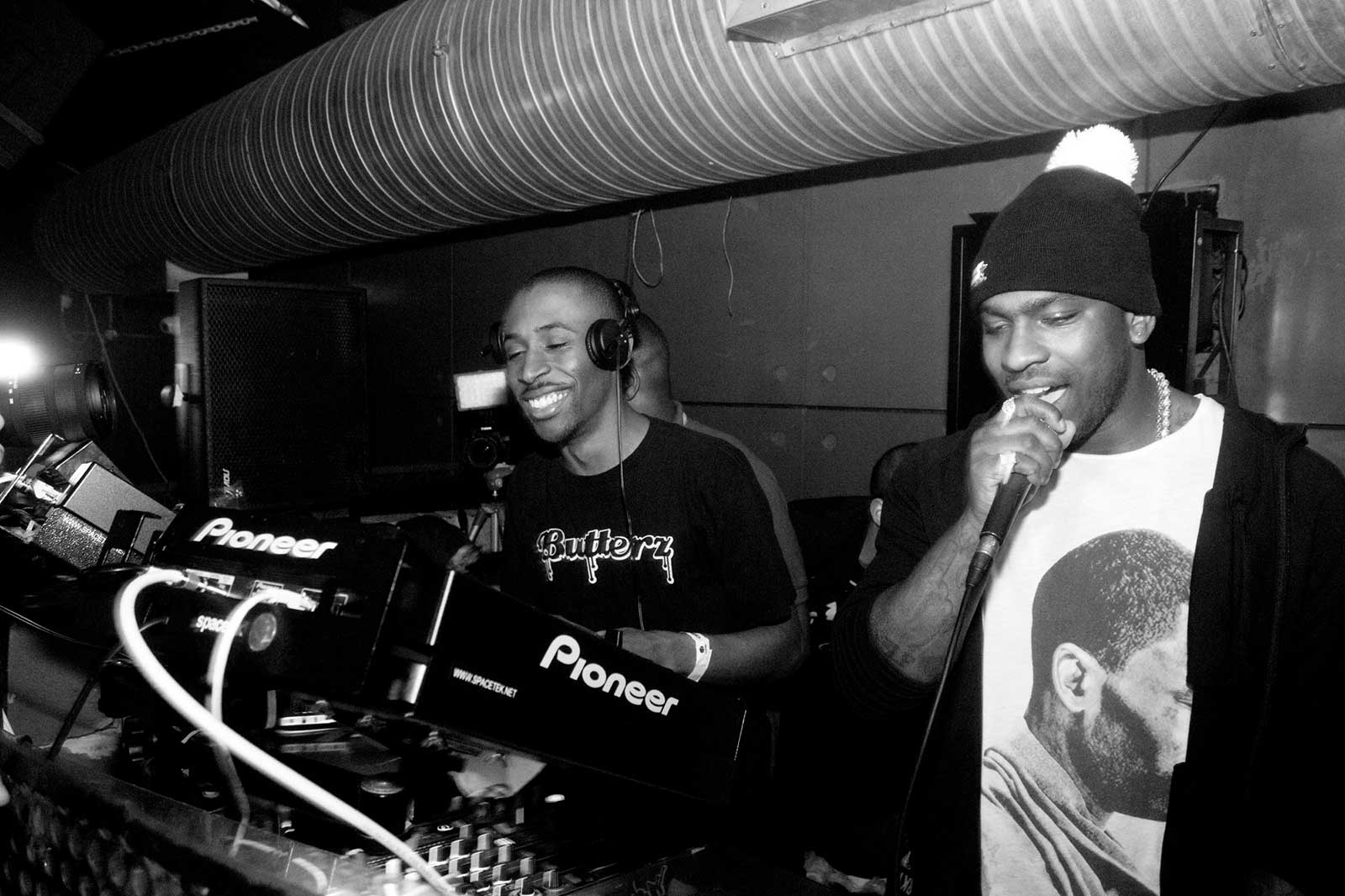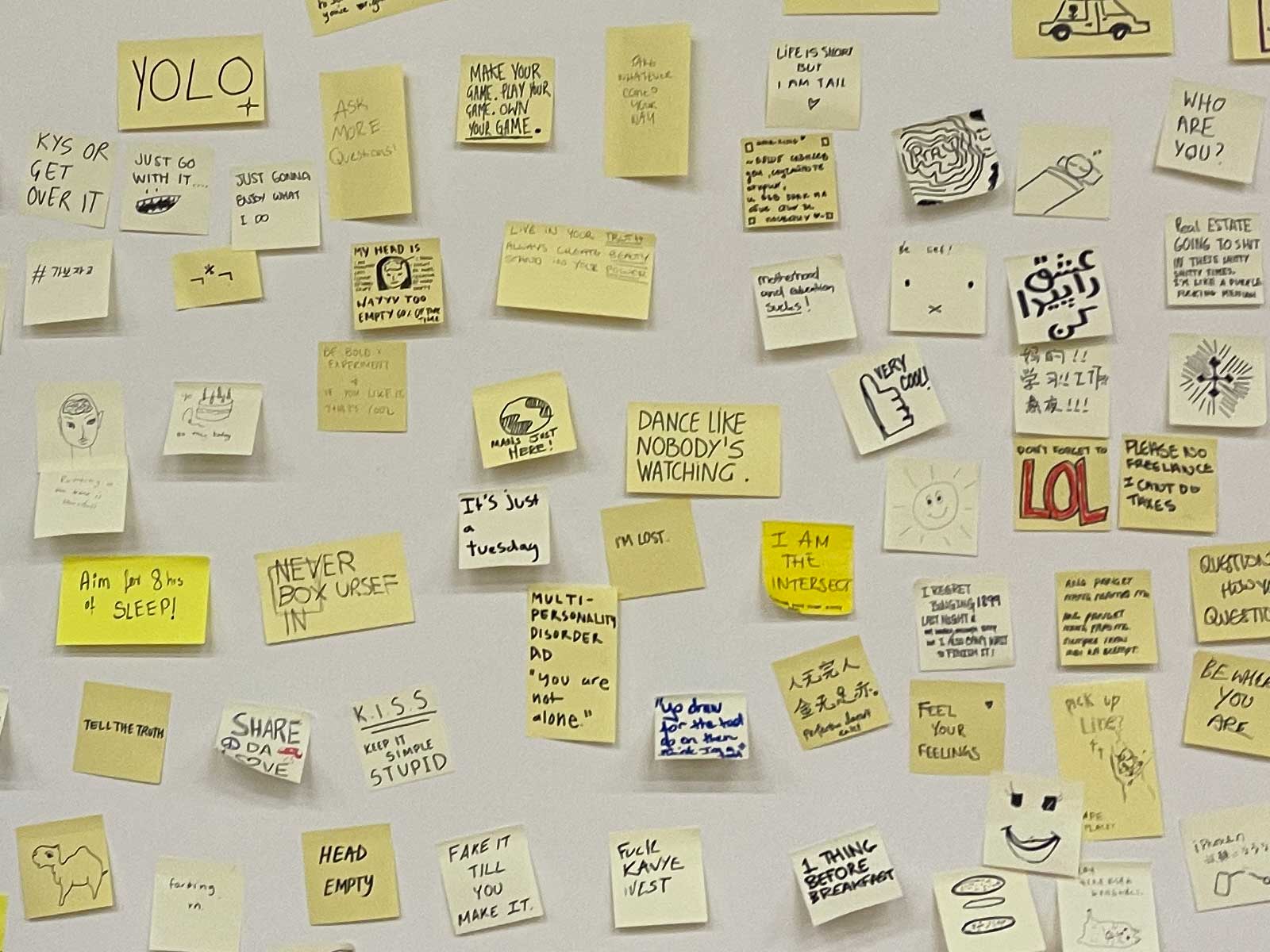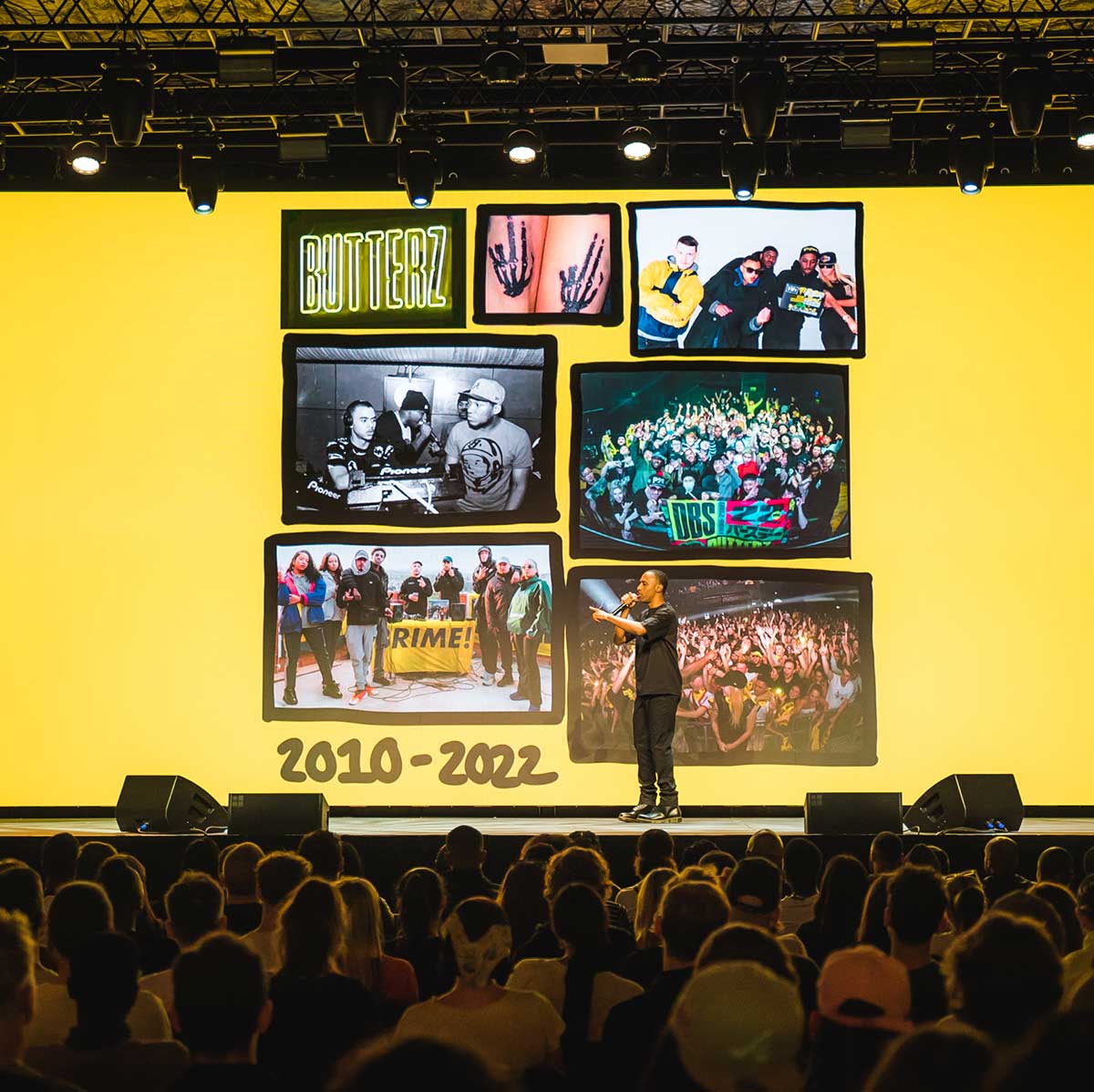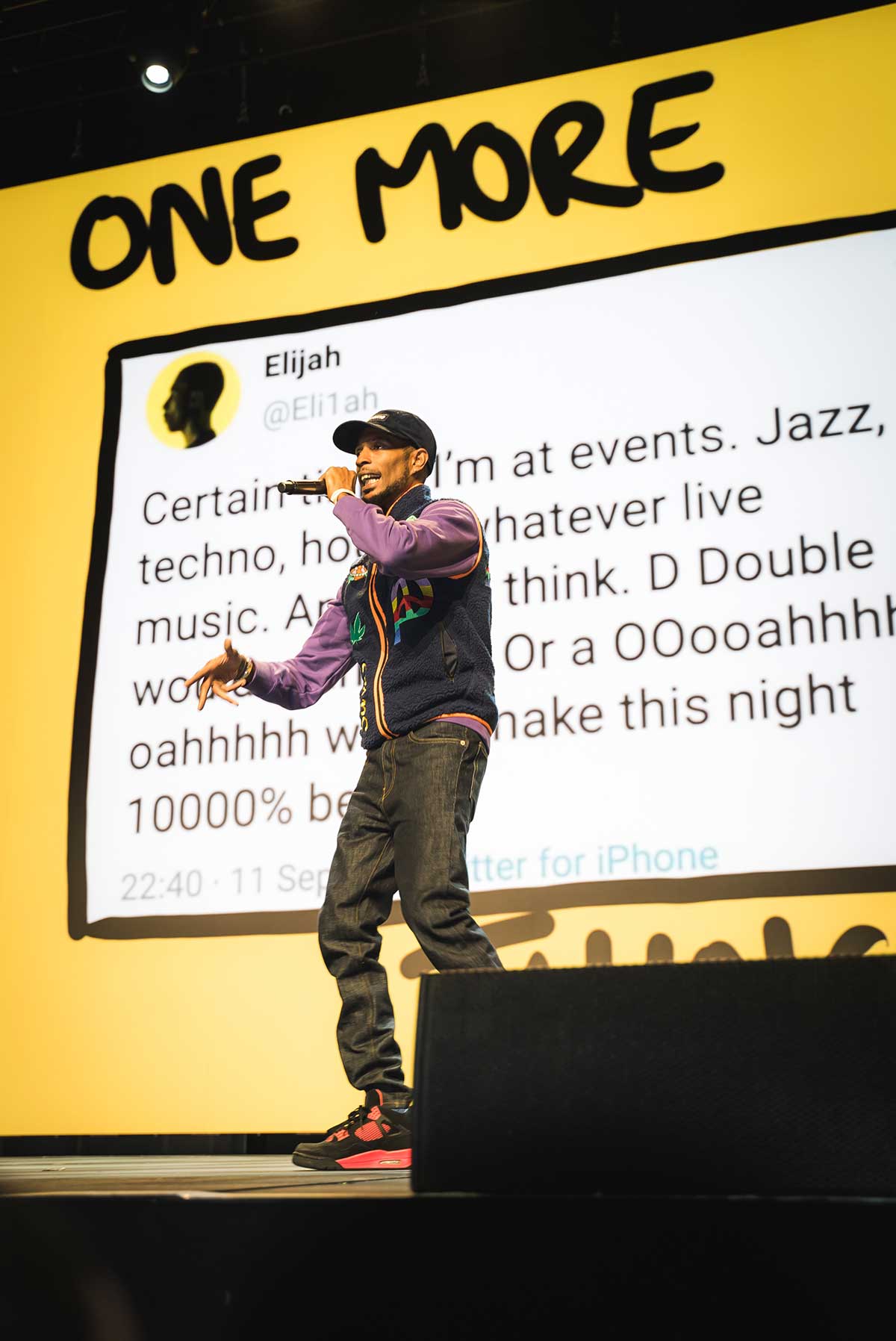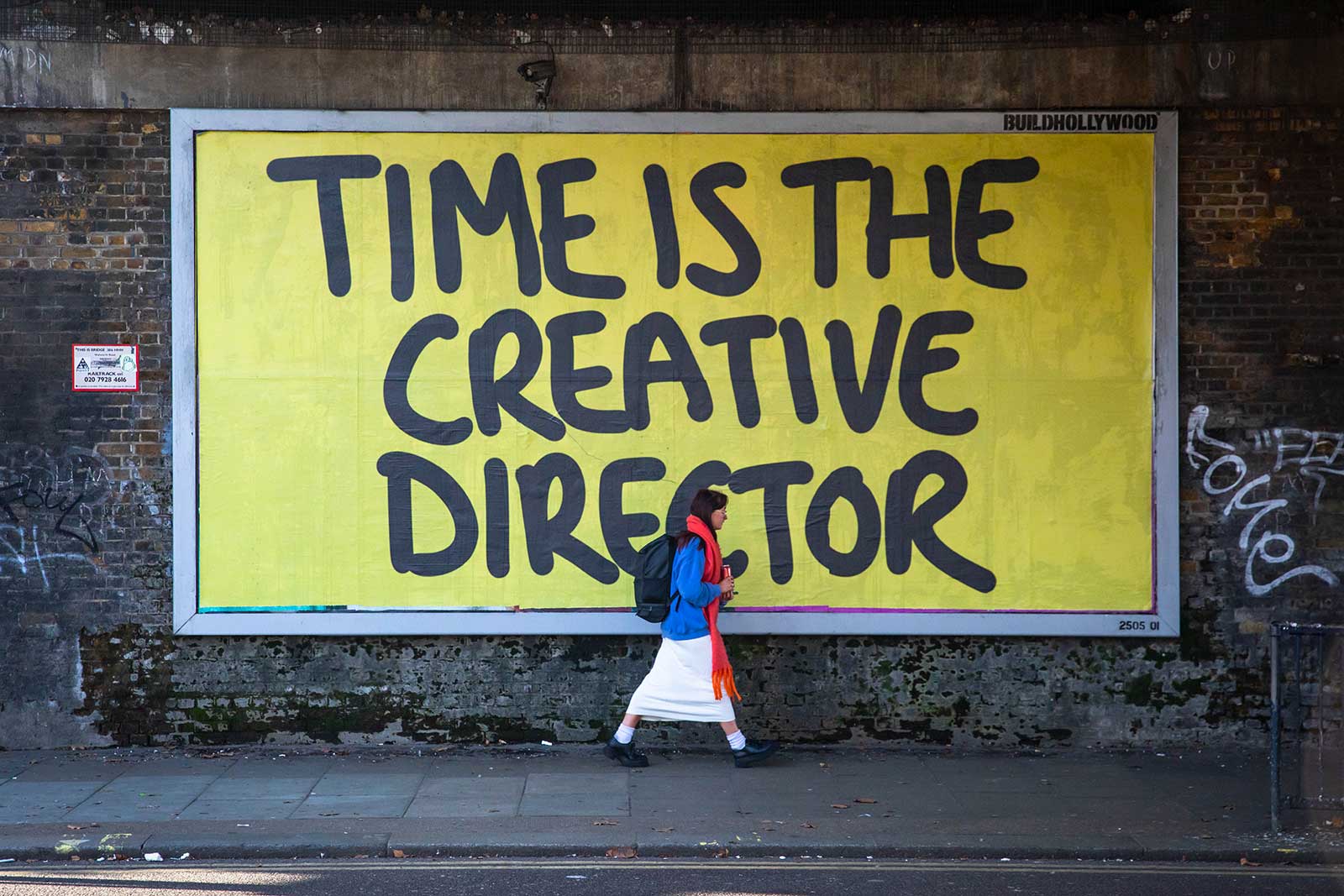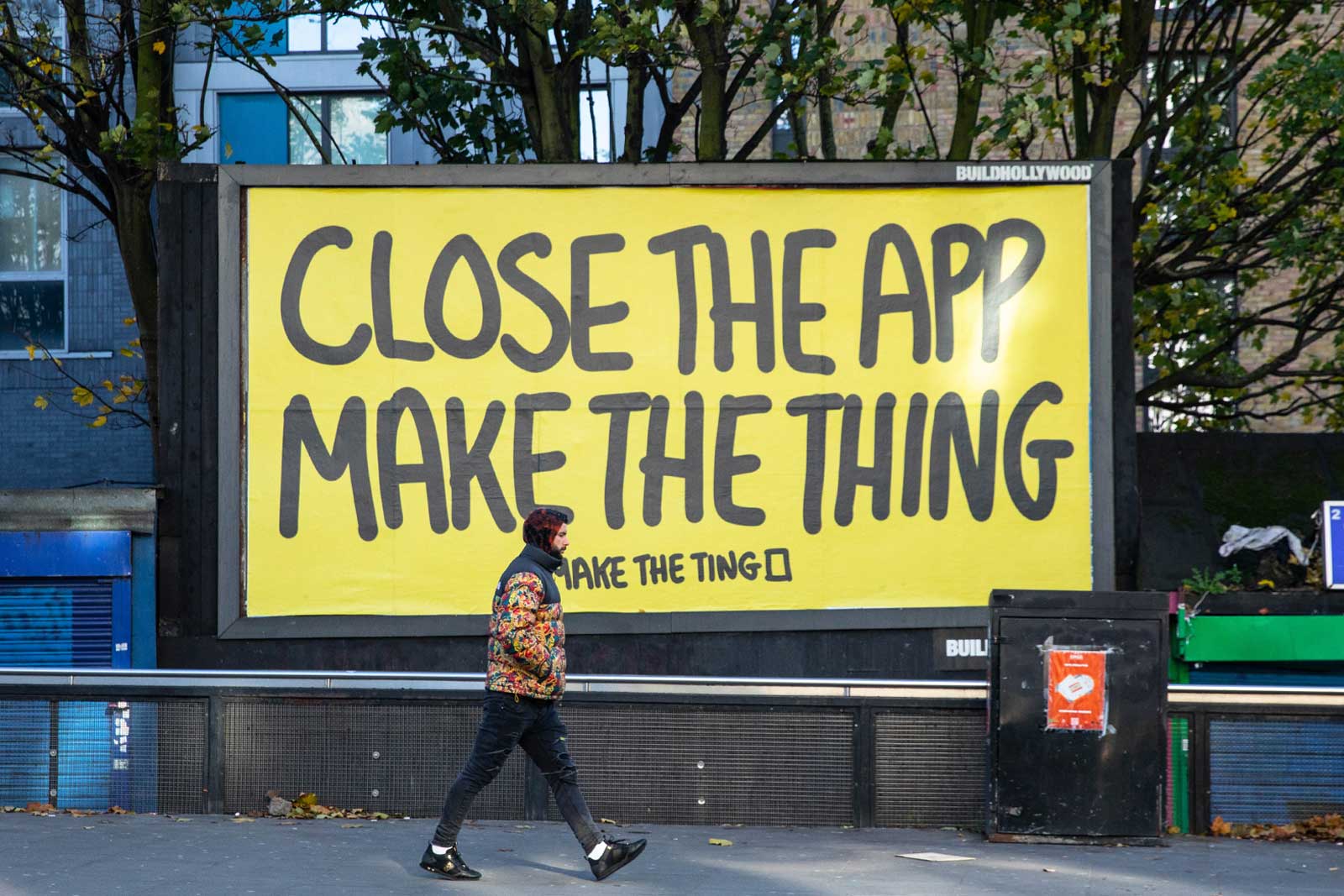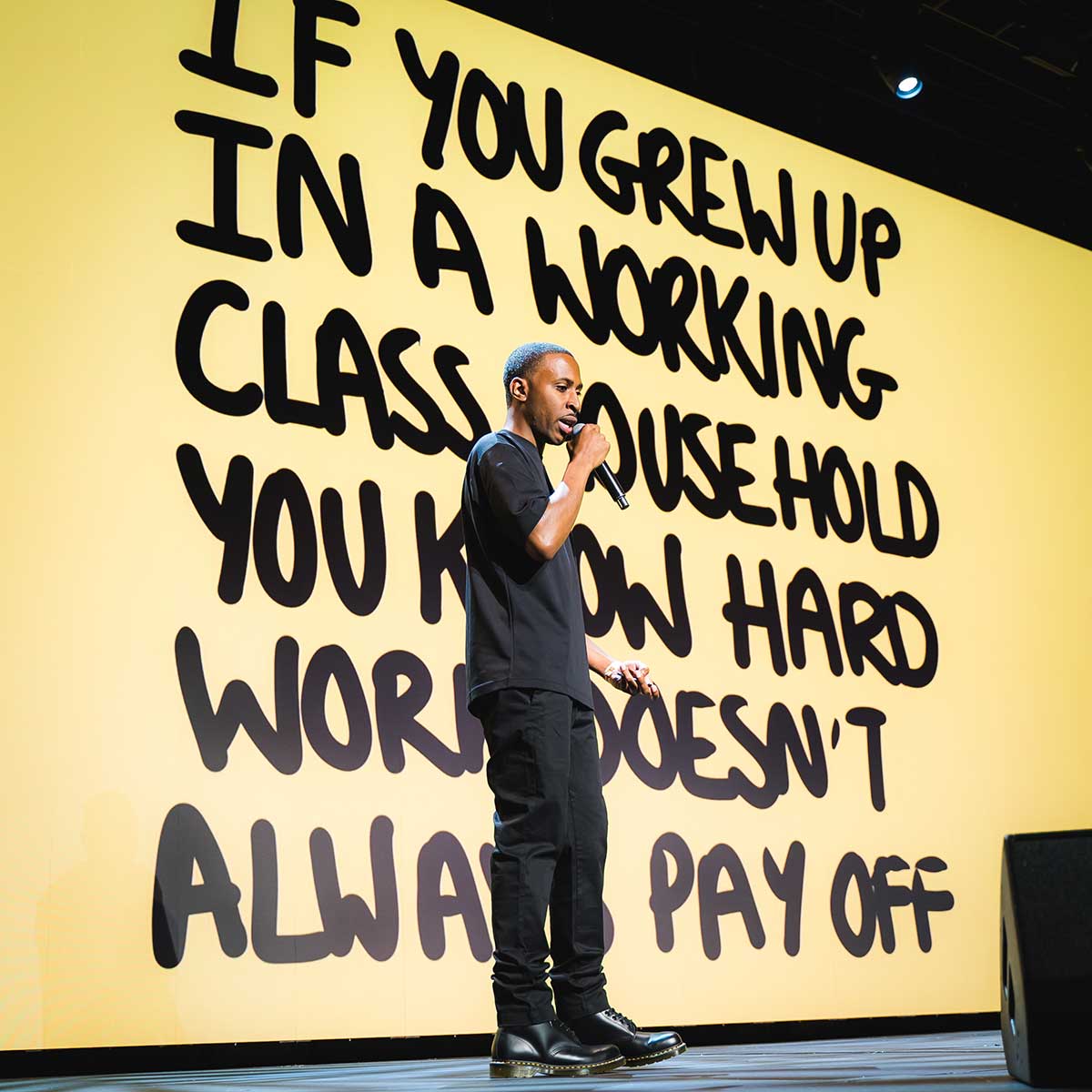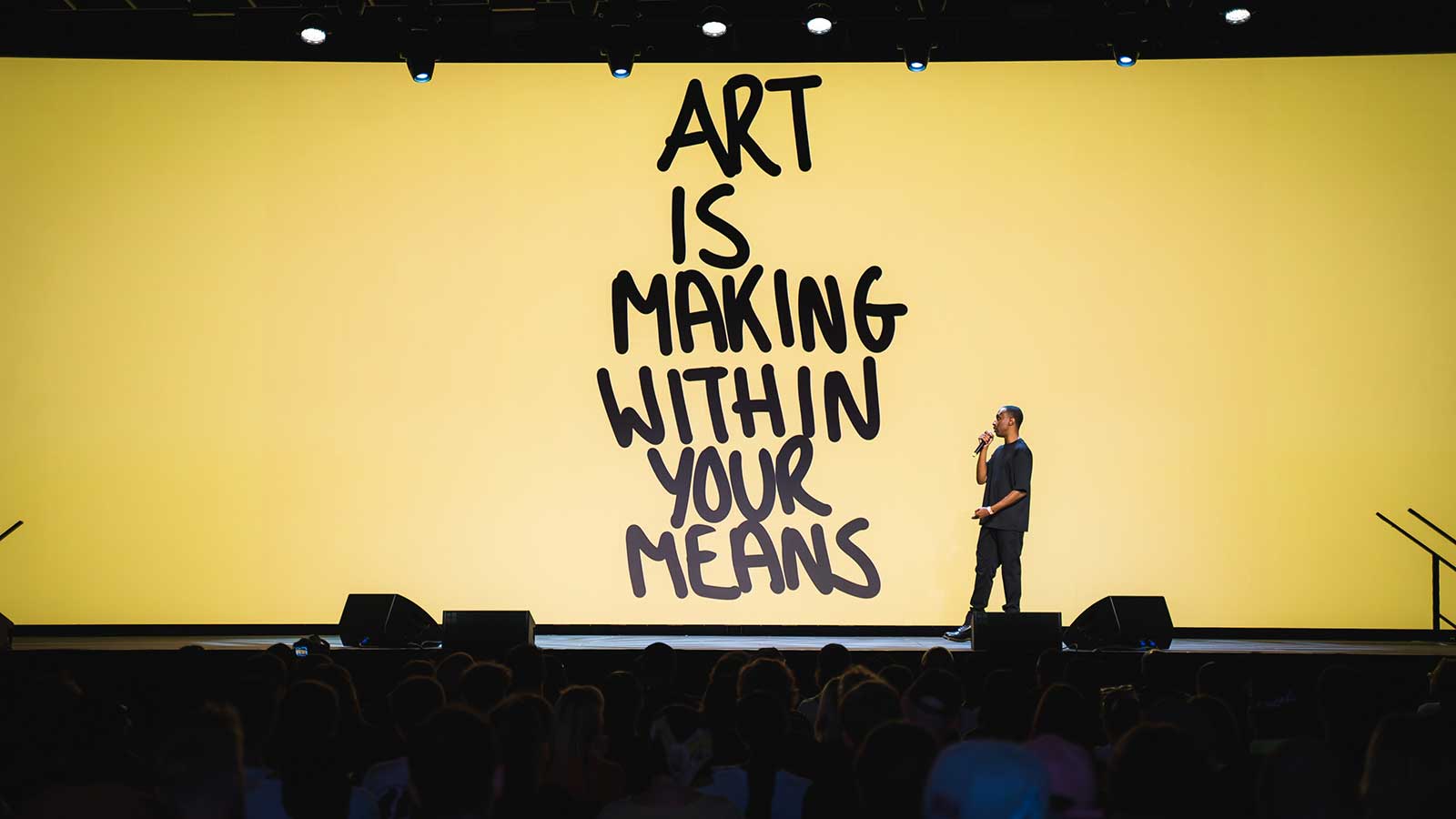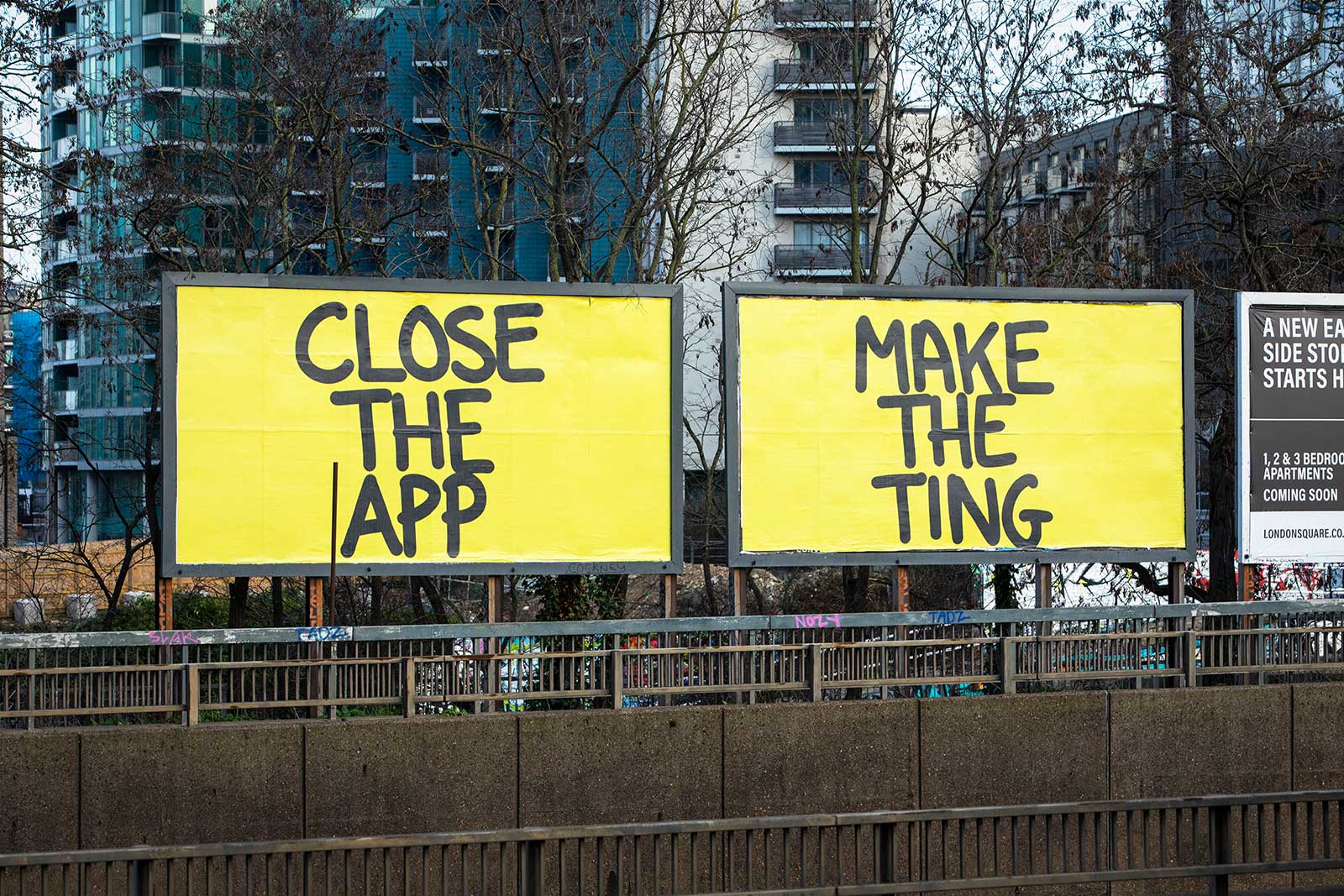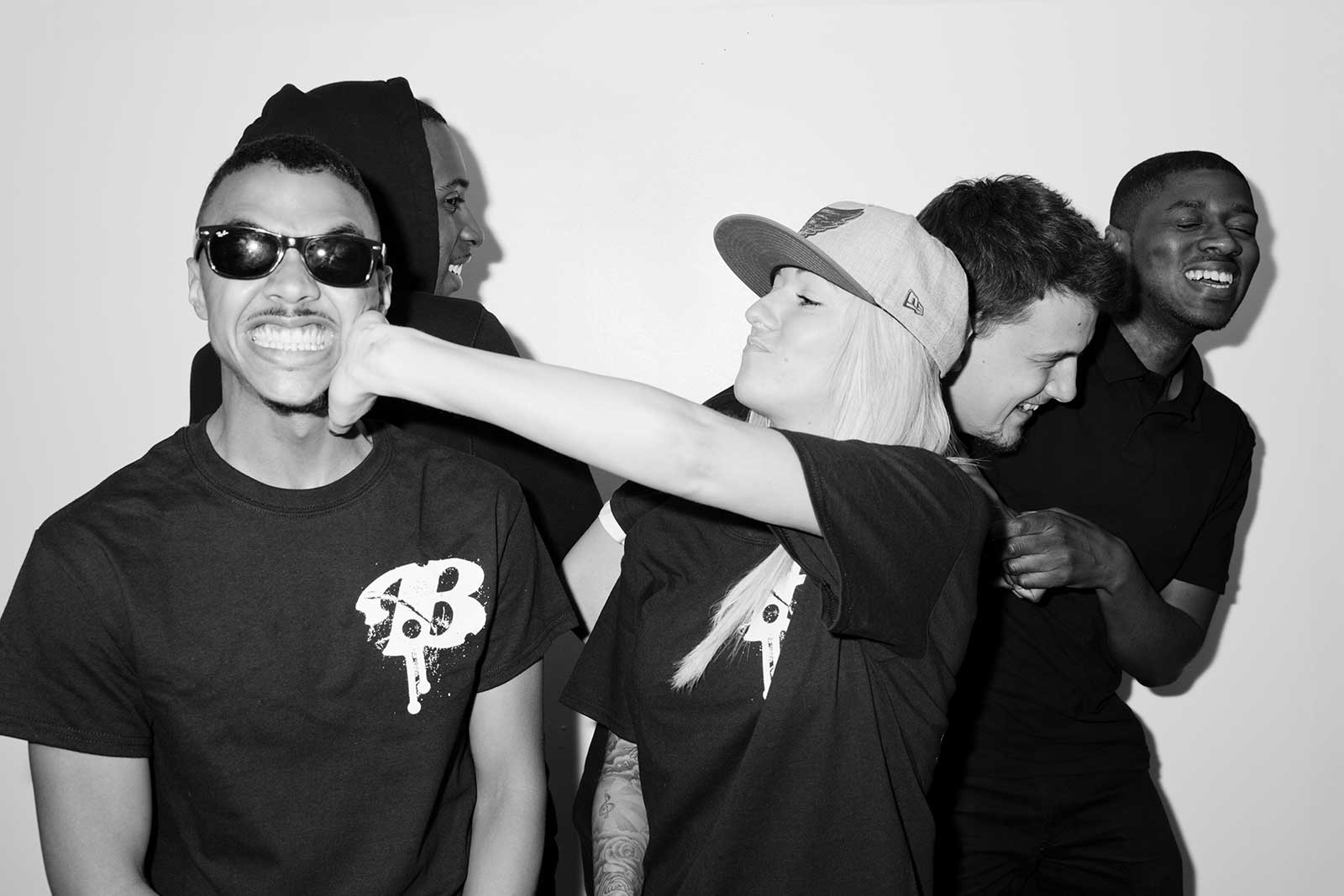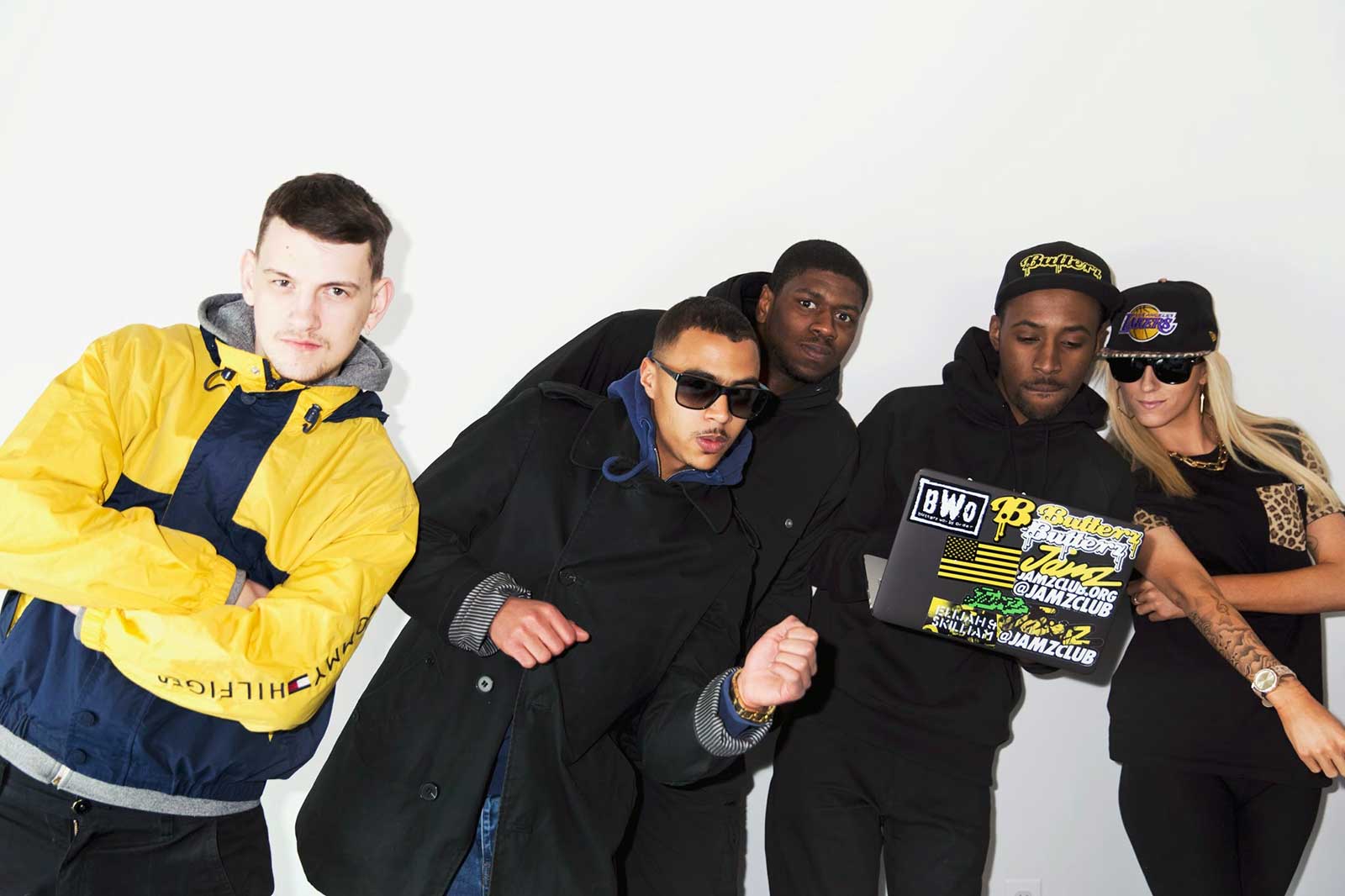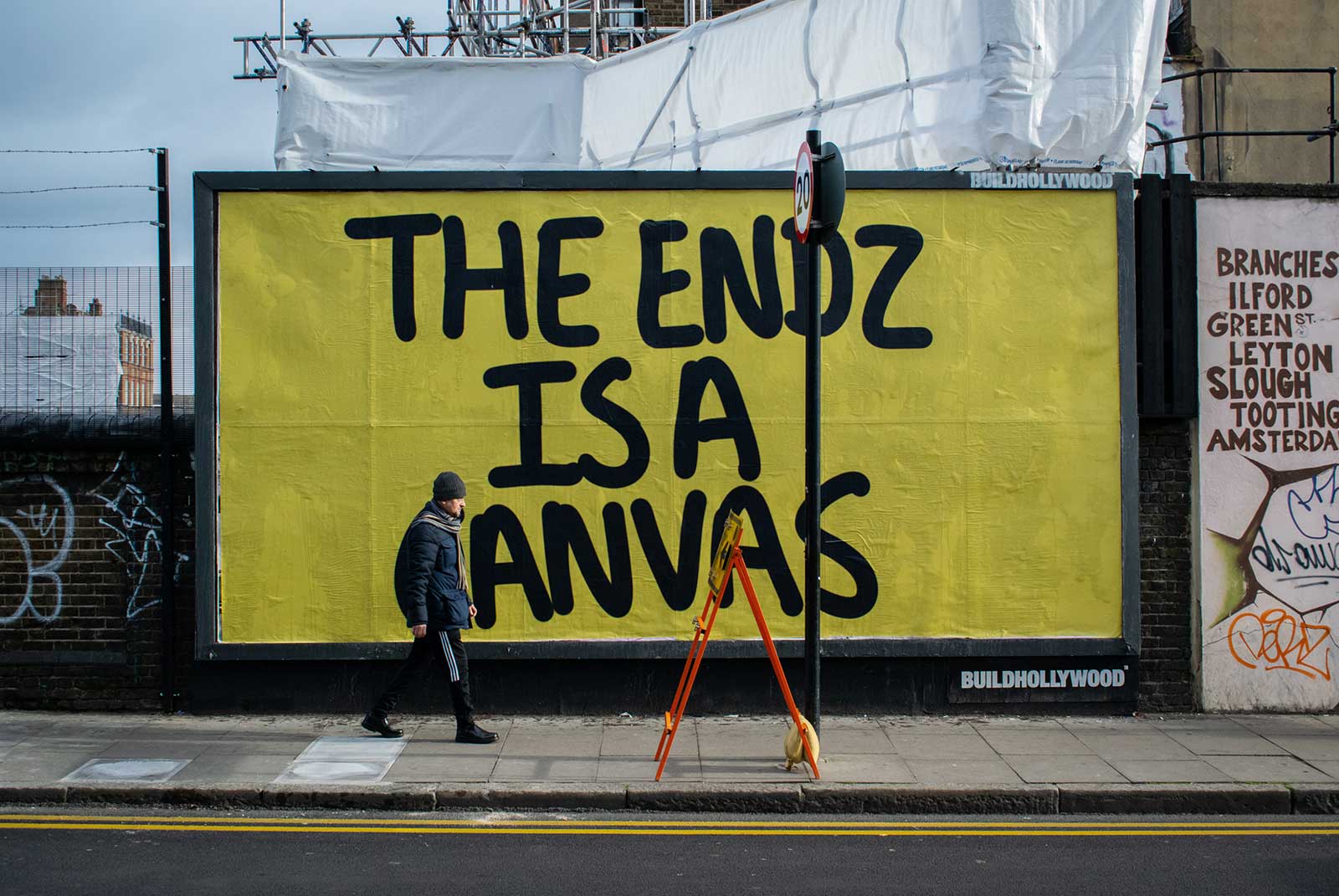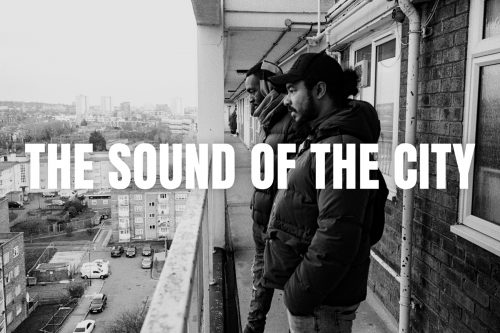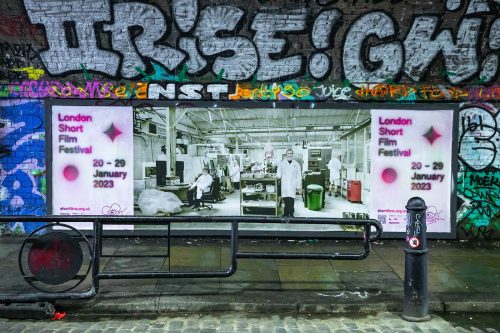Your Space Or Mine
Elijah’s Yellow Squares began life on Instagram. Now we’re collaborating with him as part of Your Space Or Mine, with a series of new billboards
In summer 2021 Elijah turned the ongoing conversations he’s always been having – about music, culture and the business of making a living from it – into Yellow Squares.
The Londoner had begun his creative endeavours DJing and running a blog inspired by the grime he was hearing at club nights like FWD>> at Plastic People. The blog turned into a popular and influential club night, initially at Cable in London, and then into a label of the same name, issuing proper big tunes like S-X’s ‘Wooo Riddim’ and managing artists including Flava D, Swindle, Royal T and DJ Q. Along the way, he’s also worked with youth projects including a stint with Brighton’s Lighthouse and helping Youth Music set up their NextGen fund.
The Yellow Squares started as scribbled post-it notes which the Walthamstow resident gradually began posting here and there, initially on Twitter and then on Instagram. He posted daily in the summer of 2021 and rebooted the following January, posting the now-consistent design hundreds of times in 2022. It was a way of sharing his ideas and instigating conversation with the communities he connected with online, using comments as a kind of R&D lab. They created a powerful place for exploring ideas and generating ways in which people can navigate their way through the interlocking complications of money, art and creativity.
03.02.23
Words by


